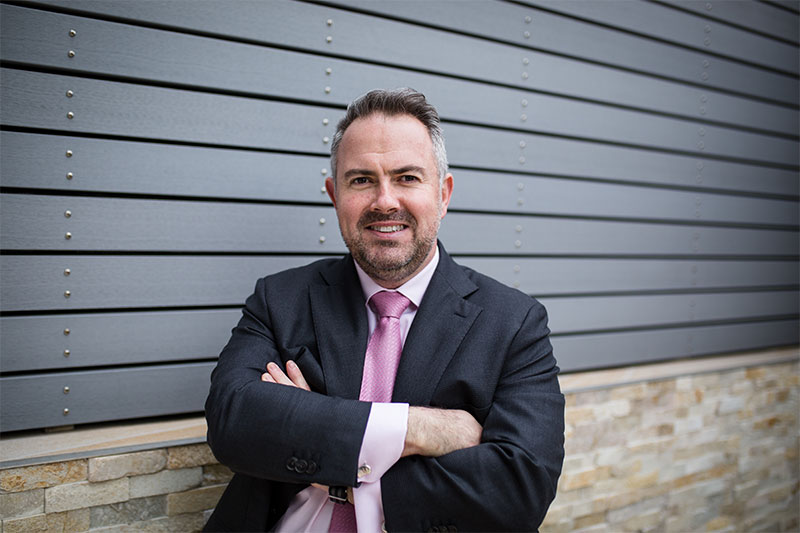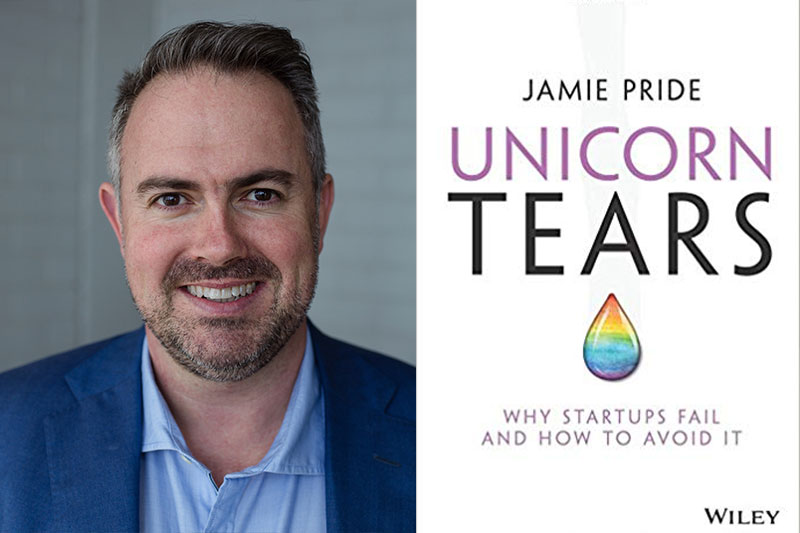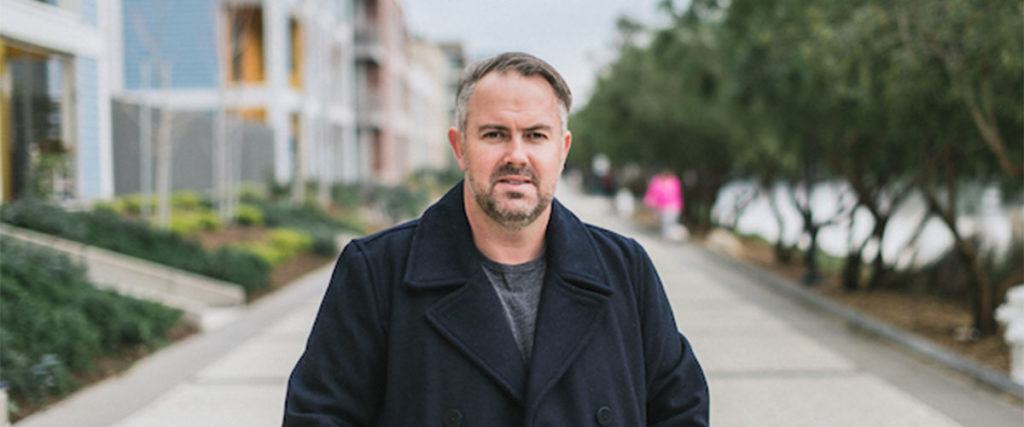Australian serial entrepreneur Jamie Pride once lost USD 200 million in 14 weeks in a disastrous listing. Now, he’s helping other entrepreneurs survive the challenges of the startup world – where the failure rate runs at 96%.
Life as an entrepreneur is like riding a roller coaster. One minute you’re surfing the highs of a successful funding round or rollout; the next, you’re facing the lowest of the lows. This is something Australian serial entrepreneur and mental wellness author Jamie Pride knows well, having seen the stock price of his startup, human resources company REFFIND, rocket from USD 20¢ to almost USD 2 and then back again within 30 weeks of listing in 2014. “We lost USD 200 million in 14 weeks,” he recalls of the days when his life hit rock bottom. Now an expert in mental wellness for entrepreneurs and founders, he walked Hive Life through the lessons he’s learned on how to build resilience in the face of inevitable failures – something he sees as key to preserving not only yourself and your mental health, but also your business along the way.

In his 40s at the time, Jamie found early success in both the corporate world and the startup arena. Starting out as a network engineer at Cisco Systems, he served as a manager at the multinational technology conglomerate for 5 years before becoming the VP of Services at Salesforce, a partner at Deloitte, and one of the youngest CEOs to head a billion-dollar business at real estate company realestate.com.au. His first startup Velteo, founded in 2009, then “grew to become one of the biggest integrators of Salesforce’s technology in Australia.” With almost a decade’s experience in senior leadership positions, Jamie thought he was well-versed enough to weather any crisis until, after the disastrous listing of REFIND, he wasn’t.
“I couldn’t get out of bed for three months. My family received death threats. I had to move to a new house,” the Sydney native wrote in his book Unicorn Tears. “It was the low point of my career as an entrepreneur,” he says, and he sought solace everywhere but where it mattered. “I wasn’t taking care of myself physically. I drank too much alcohol. A lot of things just became a cycle, and it just made things worse,” he remembers. It wasn’t until he was rushed to a hospital with a suspected heart attack that Jamie got the ‘wake-up call’ he needed.
Following his hospitalisation, Jamie left REFIND for good. Now, having been through the trenches himself, he’s devoted his career to helping founders manage their stress, deal with the highs and lows of starting a company, and – most importantly – learn to bounce back from adversity. “You need to create resilience from day one,” he states. “You need to develop the capacity to deal with stress when you don’t need it because it’s too late if you only start thinking about it when your startup is already going under.”

For Jamie, the key to developing resilience is to be found in a supportive network, and this is what he hopes to offer through ‘The Founder Lab,’ a peer-to-peer support group for entrepreneurs that he founded in 2017 which provides a safe space to share stresses and challenges. “Startups are very much about networking, raising capital, looking for talents, raising funds – it’s all about the business. Rarely is it about the founders,” he explains. “It’s like everybody is happy to say that they go to the gym to strengthen their muscles, but no one really says it’s to strengthen their mind.”
“At the moment, a lot of focus in the startup world is around capability. But, if I look at health and wellbeing, a lot of founders don’t take care of themselves – physically, emotionally or mentally. They can’t deal with the stress that comes with success and failure.” In an arena where confidence is currency, where success is glorified, there is a deeply-rooted belief among founders that admitting their fears and doubts is a taboo that could hurt their businesses.
The past few years have seen the emergence of a counter-narrative. Big names such as Elon Musk and Rand Fishkin (the former CEO of SEO software platform Moz) have spoken out about the emotional toll caused by their entrepreneurial journeys and failures. Initiatives such as Failcon, a conference that revolves around the theme of failure, have been launched in Silicon Valley to call attention to the elephant in the room. But, while the level of acceptance around failure might have increased globally, Jamie sees the opposite in Australia. “We definitely have a stigma associated with failure. It’s still something shameful.” In addition, the entrepreneurial journey they face now is, in some ways, harder. “We’ve just gone through the golden age where anybody could raise funds for their idea,” he explains. Next, he predicts “a tsunami of failures in early-stage startups, because most venture capital companies are backing really successful companies now. Venture companies are getting more conservative because of the economic downturn, and it’s easier for them to put more money into a proven company,” Jamie warns.

In light of the tough times he sees ahead, Jamie feels the secret to resilience lies in accepting that there are things in life we can’t change. “You can’t necessarily control the world, but you can control your perception of it and the way you behave, and ultimately, feel,” he says. One of the major mistakes most startup founders make is that they connect themselves too strongly with their businesses. Thanks to a mix of ego and pride, they tie their self-worth to them. “Your business might fail, but it doesn’t make you a failure,” Jamie emphasises. “The reality is, 92% of startups fail. Failure is a natural part of entrepreneurship. Therefore it’s paramount that we prepare for failure better.”
For Jamie, what that means is seeing failure in a developmental light and as an increasingly essential skill. The first step to mastering that is to have realistic expectations. “It’s better to have small micro failures along the way rather than one big failure,“ he says. “We tend to model ourselves on the Mark Zuckerburgs or Elon Musks of the world who’ve had success with their first try, but that’s not what a typical startup cycle looks like. The reality is, we might do 10 startups over the course of our career to succeed. It’s really about hardening yourself, learning from that failure, and moving on.”
The final piece of the puzzle comes down to some simple self-care. “It really is about sustainability,” says Jamie. “Taking care of yourself physically is of utmost importance, and that includes keeping track of your work pressures, diet, alcohol consumption, and exercise. Getting good sleep is the number one thing entrepreneurs can do to be successful. If you’re sleeping well, you’ll be more creative at work and have a better relationship with your co-founders and customers. You’ll be less cranky and make better decisions.” Currently working on his next book, which is themed around being a better leader, he concludes, “I encourage founders to take care of themselves because by doing so, they are taking care of the business.”
Related Articles
Does an MBA Make You A Better Entrepreneur?
10 Essential Skills You Need as An Entrepreneur
A Young Entrepreneur’s Risky Venture into the World of Freight Forwarding





